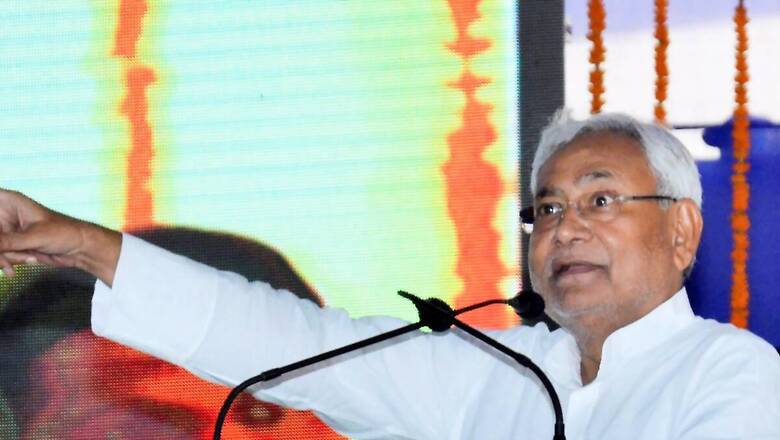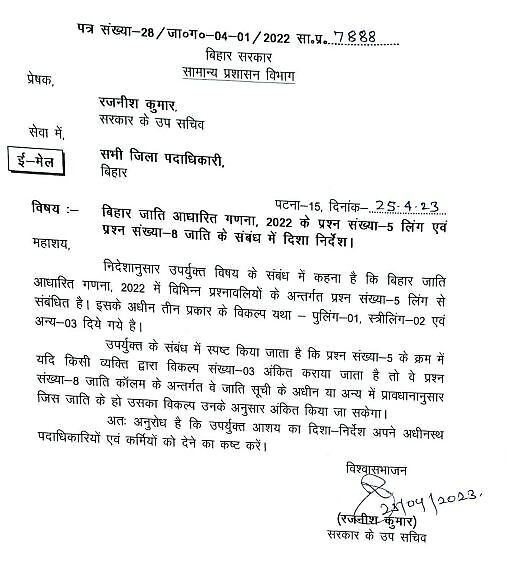
views
In Bihar, where the second phase of the caste survey started on April 15 and will continue till May 15, the caste code for ‘third gender’ had been numerically allotted as 22 — the same for 214 other castes. This triggered a row in the community which called the move discriminatory and arbitrary. Now the state government after outrage from the trans community nationwide has clarified and directed the district magistrates of the state to consider the caste of transgender people and mention this in the form of the survey.
A writ petition in the form of Public Interest Litigation was filed by advocate Shashwat in Patna High Court on behalf of petitioner transgender activist Reshma Prasad on April 17. Prasad decided to approach the court to get relief because of the feeling that the government was insensitive towards them and the community had no other option.
What plea said
Prasad’s petition said that categorising “transgenders as a caste, is unconstitutional and arbitrary as it is inconsistent with Articles 14, 15, 16, 19 (1)(a) and 21 as well as the judgement of the Hon’ble Supreme Court in National Legal Services Authority vs. Union of India and Others (2014) 5 SCC 438 and as such arbitrary and unconstitutional”.
Bihar government's move to designate the third gender as a separate caste in the ongoing caste survey triggers protests from the community @JournoKSSR shares more details@AnushaSoni23 | #Bihar #CasteSurvey #TransgenderCommunity pic.twitter.com/fBVCBltvo3— News18 (@CNNnews18) April 18, 2023
Prasad’s advocate Sashwat while speaking to CNN-News18 said, “The Bihar government’s clarification that the transgender community can choose to select their respective caste is a step towards recognising their right to self-identification and promoting their inclusion in society. However, the fact that transgender individuals were initially notified as a separate caste in the caste code list published by the government is concerning, as it could perpetuate discrimination and marginalisation based on their caste identity.”
Having not been fully satisfied by the action of the state government, advocate Shashwat further said, “The failure to expunge the caste code in which transgender individuals are notified as a caste raises questions about the government’s commitment to protecting their fundamental rights and promoting their inclusion in society. The government should take steps to remove any caste-based classifications for transgender individuals and ensure that their social, cultural, and economic status is accurately reflected in any surveys or classifications.”
In a letter forwarded to all district magistrates by the state’s GAD (general administration department), the following instructions were given: “In relation to the above, it is clarified that in the order of question number-5, if option number-03 is marked by a person, then under question number-8 caste column, the caste to which they belong under the caste list or as per provision in other, option can be marked accordingly. Therefore, it is requested that the direction of the above intention may be sent to your subordinate.”

Reshma Prasad told CNN-News18, “We are happy that the state government has made these changes. It is certainly in the favour of our community. We are thankful to you that you covered the issue extensively. This mistake was made because of the basis of OBC reservation. So we demand that you give us separate reservation just like Karnataka. The purpose of the survey is for the upliftment of society and if they give us separate reservation then it would be beneficial for the transgender community. The government should also remove code 22 from the list and a fresh survey should be done else it would remain an arbitrary survey.”

Activists say it is also important for the government to take proactive measures to address the discrimination and marginalisation faced by the transgender community, including ensuring access to education, healthcare, employment, and other basic rights.
What laws say and how they are violated
Article 21 guarantees the protection of “personal autonomy” of an individual, which was established in Anuj Garg v. Hotel Association of India (2008) case and as such action by the respondent authority is against the precedence set by the Supreme Court.
The apex court in National Legal Service Authority vs Union of India (2014) has categorically and unequivocally upheld that the ‘third gender’ has the right to self-determination and “the action by the respondent authority is as such bad in law”.
Read all the Latest India News here


















Comments
0 comment